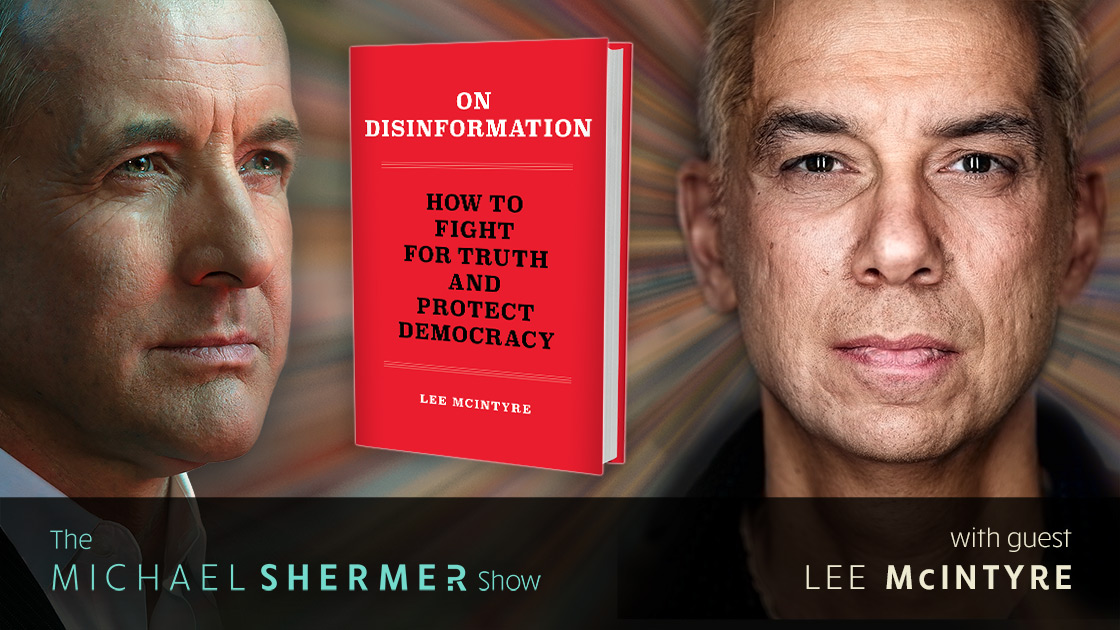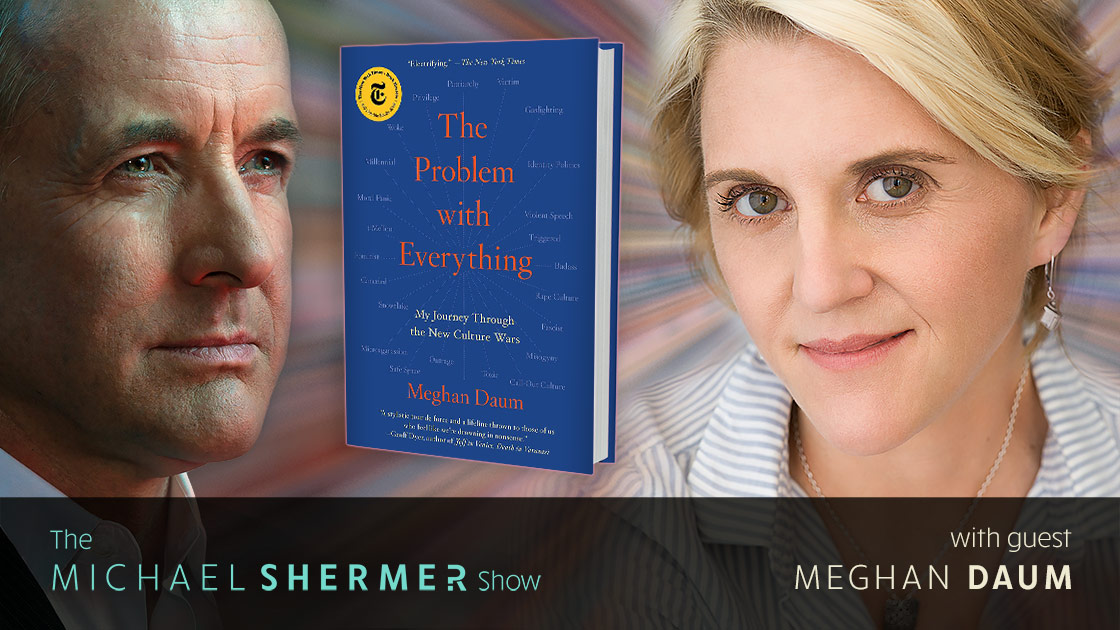transgender

Shermer and Aella discuss: Aella’s conservative Christian upbringing • sex work and feminism • male-female sexual psychology differences • why women are choosier and more risk averse • what men and women regret about sex • BDSM, fetishes, and sexual violence • the women who sell sex and the men who buy sex • agency and volition in sex work: women and men • virtual sex, phone sex, cyber sex • pornography: good or bad? • decriminalizing sex work.

Shermer and Bowles discuss: what it’s like to work at The New York Times • what it’s like to found a new media company • same-sex marriage • Liberalism vs. Progressivism • the Black Lives Matter, #metoo, and transgender movements • Patrisse Khan-Cullors • White privilege • somatic abolitionism • LGBTQ • IDAHOBIT • BBIPOC • CHAZ • homelessness • anti-racism • cancel culture • defund the police • protests.

Shermer and Ford discuss: • education reform • public vs. private vs. charter schools • the blank slate • Thomas Sowell’s Constrained Vision vs. Unconstrained Vision • French Revolution vs. American Revolution • truth, justice, and reality • what promotes humanity and what degrades it • transhumanism • political correctness • identity politics • cancel culture • totalitarianism • preference falsification • free speech • hate speech • how to stand up to cancel culture.

Shermer and McIntyre discuss: default to truth theory • RFK Jr. • whether reason evolved for veridical perception or group identity? • How do we know what is true and what to believe? • worst case scenarios if Donald Trump wins in 2024 • trans issues, race issues, GMOs, nuclear power, climate doomsdayism • What went wrong during the COVID-19 pandemic? • disinformation about masks, vaccines • social media and disinformation.

Shermer and Mandel discuss: the problem of woke ideology • anecdotes vs. data about woke actions and intentions • sex and gender • woke medicine • transgender affirming care • government vs. private responses to social movements and ideas • Trump, DeSantis, Liz Cheney, the Lincoln Project, and other GOP issues • abortion: pro-Choice or pro-Life? • support for children: government or private? • What is “the left” and how does it differ from liberalism, classical liberalism, and libertarianism? •…

Shermer speaks with Inga Thompson, one of the most decorated cyclists in American history, about what happened to her when she recently spoke out in defense of women’s rights.

Dr. Shermer comments on current events surrounding trans matters and reads his in-depth essay on the subject, originally published as one of his regularly Skeptic columns on Substack.

What is gender identity? Why do some people feel an inconsistency between their natal sex and the gender they consider themselves to be, and when and why does that “dysphoria” begin? A few very young children, mostly boys, prefer the clothes, names, and activities of girls before they even have a concept of “boy” and “girl.” But do the reasons for their gender incongruence apply to the adolescents, mostly girls, who show no interest in transitioning until puberty or later?…

Shermer and Klein discuss: sex therapist and the reasons people seek therapy • self-help sex books • sexual orientation • asexuality • sex abuse • infidelity • monogamy • polyamory • trans • homosexuality • sex education • the case against the sexual revolution • sex addiction • pornography • the anti-pornography movement • prostitution • obscenity and censorship • pedophilia.

Dr. Harriet Hall shows how the failure to read medical and health literature carefully and critically leads to a number of cognitive problems, such as correlation is not causation, and personal anecdotes and testimonials don’t count as evidence. We will miss Dr. Hall’s wisdom and encourage readers to visit her website to read her many writings over the years on medical, health, diet, and related topics.

According to the standard model of evolutionary psychology females tend to be sexually coy, discriminating, and risk averse while males are sexually assertive, indiscriminate, and risk taking. Not so fast, says Carol Tavris in this skeptical look at the standard model, as context and species also matters in how we analyze behavior, especially sexuality.

Shermer and Perry discuss: What was the sexual revolution? • feminism: first wave, second wave, third wave, and beyond • the evolutionary psychology of sex differences • experiencing self vs. remembered self • individual freedom vs. societal good • monogamy vs. polygamy • marriage vs. domestic partnerships • Why is the government in the marriage business? • BDSM and sexual violence • autogynephilia • trans matters • abortion matters.

Shermer and Daum discuss: unauthorized autobiography • Feminism (first, second, third wave, and beyond) • Was the sexual revolution good or bad (or both) for women? • badassery, problematica, wokescenti, cognoscenti • Gen Xers • Elders • What is a woman? • Sex and Gender • who you identify as vs. who you’re attracted to • Trans • #metoo and #BLM movements • intersectionality • toxic masculinity • wokeness, liberal vs. progressiveness, far left vs. left • cancel culture, and…
Trans rights are human rights, but rights do not mean that any of us can do anything we like any time. There are restrictions on our actions, and when there are conflicting rights something must give. In this article on trans athletes, Michael Shermer explains why Male-to-Female trans athletes competing in women’s sports is unfair and a threat to the hard-earned rights of women to compete in their own athletic divisions, and why biological males that have gone through puberty…
In this important analysis of the medical issues involving trans people, Dr. Harriet Hall reviews what medical science knows about puberty blockers, vaginoplasty, phalloplasty, rapid onset gender dysphoria, detransitioners, and why “watchful waiting” is probably the best strategy at the moment given the considerable uncertainties.

In this overview of the debate, research, and policies related to various trans matters, Lisa Selin Davis has written what is arguably the best and most balanced treatment of the culturally radioactive topic that incites passioned opinions on both sides of the political aisle. The trans movement is relatively new and science has just begun intensive study of the various issues, so opinions could change with changing evidence, but for the time being read this article for the most comprehensive…

Michael Shermer speaks with Cathy Young, a cultural studies fellow at the Cato Institute. She writes on a wide variety of cultural and political issues, including gender issues (equal opportunity in the workplace, sexual harassment policy, sexual assault and domestic violence law, child custody, etc.), freedom of speech and intellectual tolerance, diversity, education, and perspectives on American history, as well as Russia and U.S.-Russian relations.
Announcing Skeptic 27.1: Transgender Matters — an overview of the debate, research, and policies; supporting kids who identify as transgender or who are experiencing gender dysphoria (marked distress at an incongruence between gender identity and biological sex).
Social psychologist Carol Tavris thoughtfully explores and questions “affirmative trans medicine,” the latest dangerous medical practices bubble. Few question the mystifying explosion of cases of gender dysphoria among adolescents and the proliferation of clinics to treat them. Vulnerable teens and baffled parents resort to internet misinformation and succumb to biased media influence, while experts spurn exploratory therapies and promote untested treatments that have long-term effects. Dissenters are vilified and silenced as being transphobic.
Social psychologist Carol Tavris thoughtfully explores and questions “affirmative trans medicine,” the latest dangerous medical practices bubble. Few question the mystifying explosion of cases of gender dysphoria among adolescents and the proliferation of clinics to treat them. Vulnerable teens and baffled parents resort to internet misinformation and succumb to biased media influence, while experts spurn exploratory therapies and promote untested treatments that have long-term effects. Dissenters are vilified and silenced as being transphobic. PLUS: Michael Shermer Speaks with Johnjoe McFadden…
NEXT →























